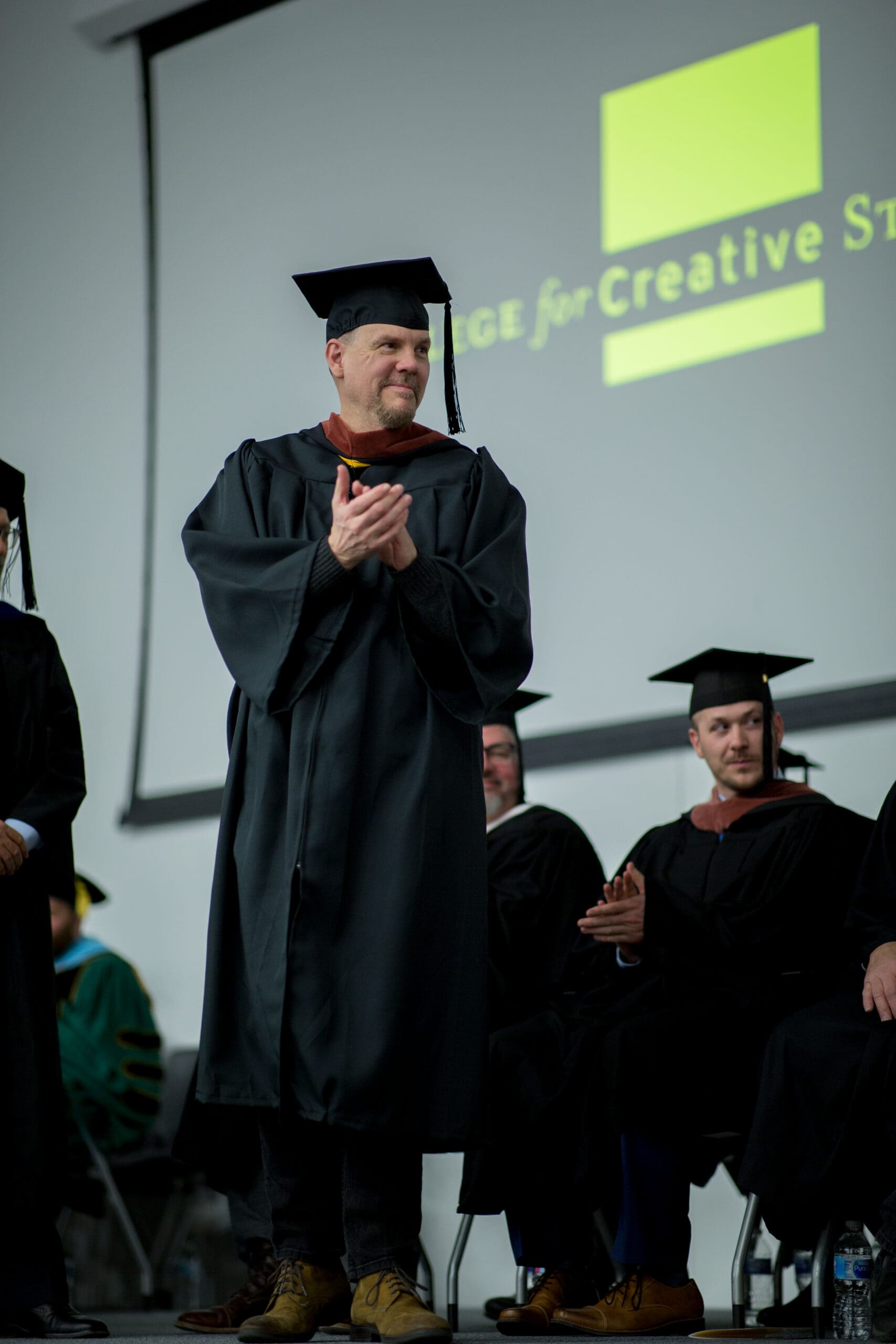Tim Flattery, CCS Provost & Renowned Concept Designer, Retires
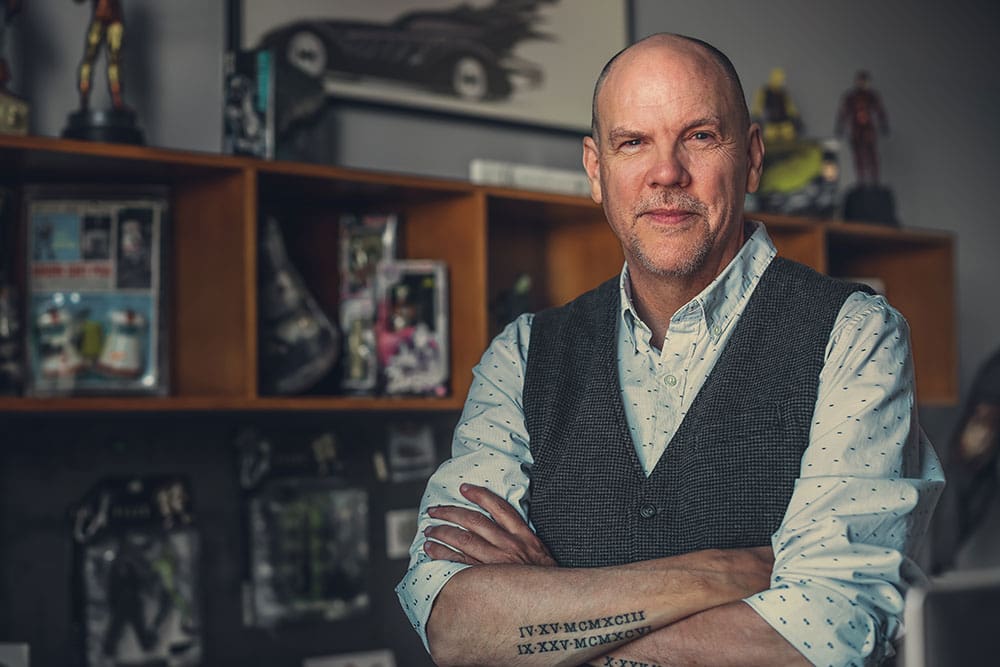
Tim Flattery, Provost, Vice President of Academic Affairs and Chief Academic Officer for the College for Creative Studies (CCS), is retiring, effective June 30, 2025. The renowned Hollywood concept artist, designer and educator provided 10 years of leadership at the College, including prior roles as Co-Leader of Academic Affairs, Chair of the Entertainment Arts department and Dean of Undergraduate Studies.
Leader
“The atmosphere here is electric. There’s a creative fuel that just pumps through every room and every hallway of this institution that’s really infectious and inspiring. I’ll miss being around that constantly.”
– Tim Flattery
Flattery’s retirement marks the end of a fulfilling academic career at CCS, where his story began as a student. He graduated from the Transportation Design program in 1987 and credits the program for providing the transferable skills needed to have a successful film career in the Hollywood film industry. “CCS gave me all the tools that I could have imagined needing for success,” Flattery says. “It gave me the tools to think outside the box in regards to solving design problems, which makes the CCS grad very unique. And that was something that was noticed in Hollywood.”
Creative
Not only did Flattery break into Hollywood film, he thrived in it, nurturing a nearly 40-year career in the industry and racking up more than 100 film credits. He has conceptualized and designed for some of the most popular films of the late 20th and early 21st centuries, including “Back to the Future II,” the “Men in Black” movies, “Pirates of the Caribbean: Dead Man’s Chest,” “Dune,” and several Marvel movies including “Guardians of the Galaxy Vol. 2,” “Captain Marvel,” “Thor: Love and Thunder” and “Black Panther: Wakanda Forever.”
Flattery developed some of the most recognizable prop designs, like the Infinity Gauntlet for “Avengers: Infinity War,” the Batmobile for “Batman Forever” and the Fantasticar for “Fantastic Four: Rise of the Silver Surfer.” Flattery has also been nominated for two Art Directors Guild awards and won its Excellence in Production Design Award for his work on “Avengers: Endgame.”
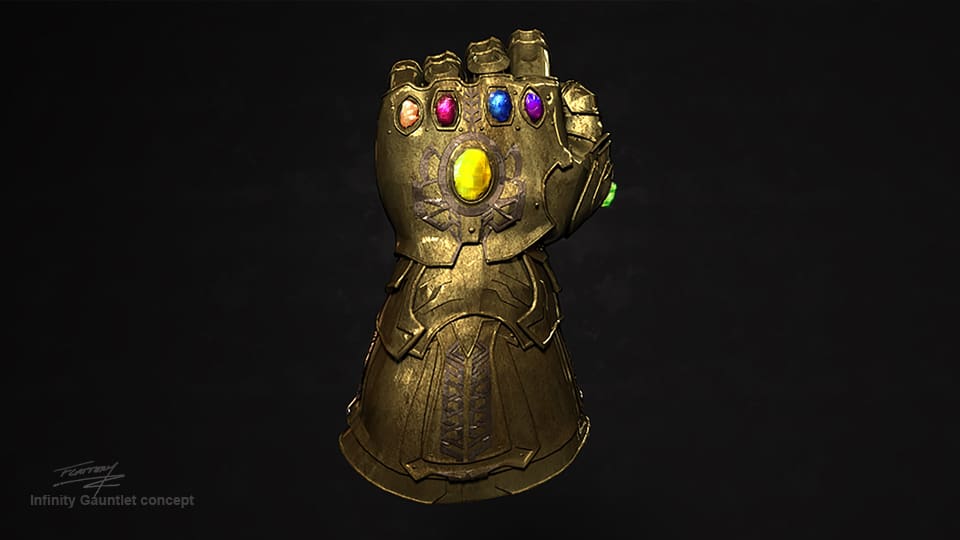

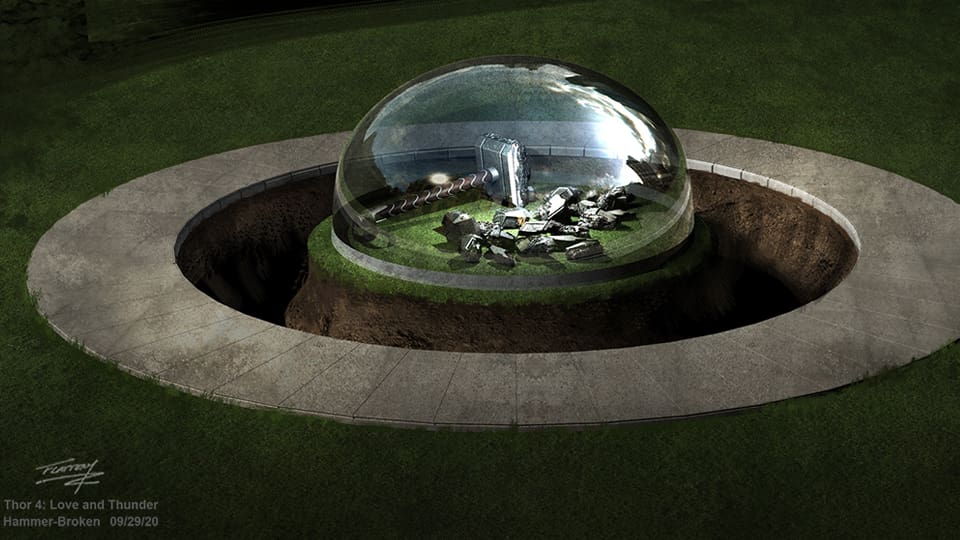
No matter how far Flattery went or how successful his career was, he never lost sight of where his roots were sown. That’s why in 2015, when former CCS President Richard L. Rogers tapped him to serve as Chair of Entertainment Arts, Flattery moved back to Detroit from Los Angeles, ready to “live the rest of my life back home where my DNA is.”
Mentor
As Chair of Entertainment Arts, Flattery created the Concept Design program, a competitive program that teaches students conceptual skills, 2D and 3D execution, and designing hardware, architecture, characters and environments. While developing this program, Flattery drew upon his experience in the film industry as well as his time creating a similar concept design program as Chair of the Entertainment Design program at ArtCenter College of Design in California.
CCS President Don Tuski credits Flattery’s leadership, hiring and execution for making Entertainment Arts a nationally recognized department.
“In talking with Tim during my first couple of years [as president of CCS], I realized that he had a rare mix of high-level industry experience. That mix of accomplishments in the industry, paired with great academic leadership at CCS and ArtCenter, were things that got my attention and led to Tim becoming Provost.”
– Don Tuski, CCS President
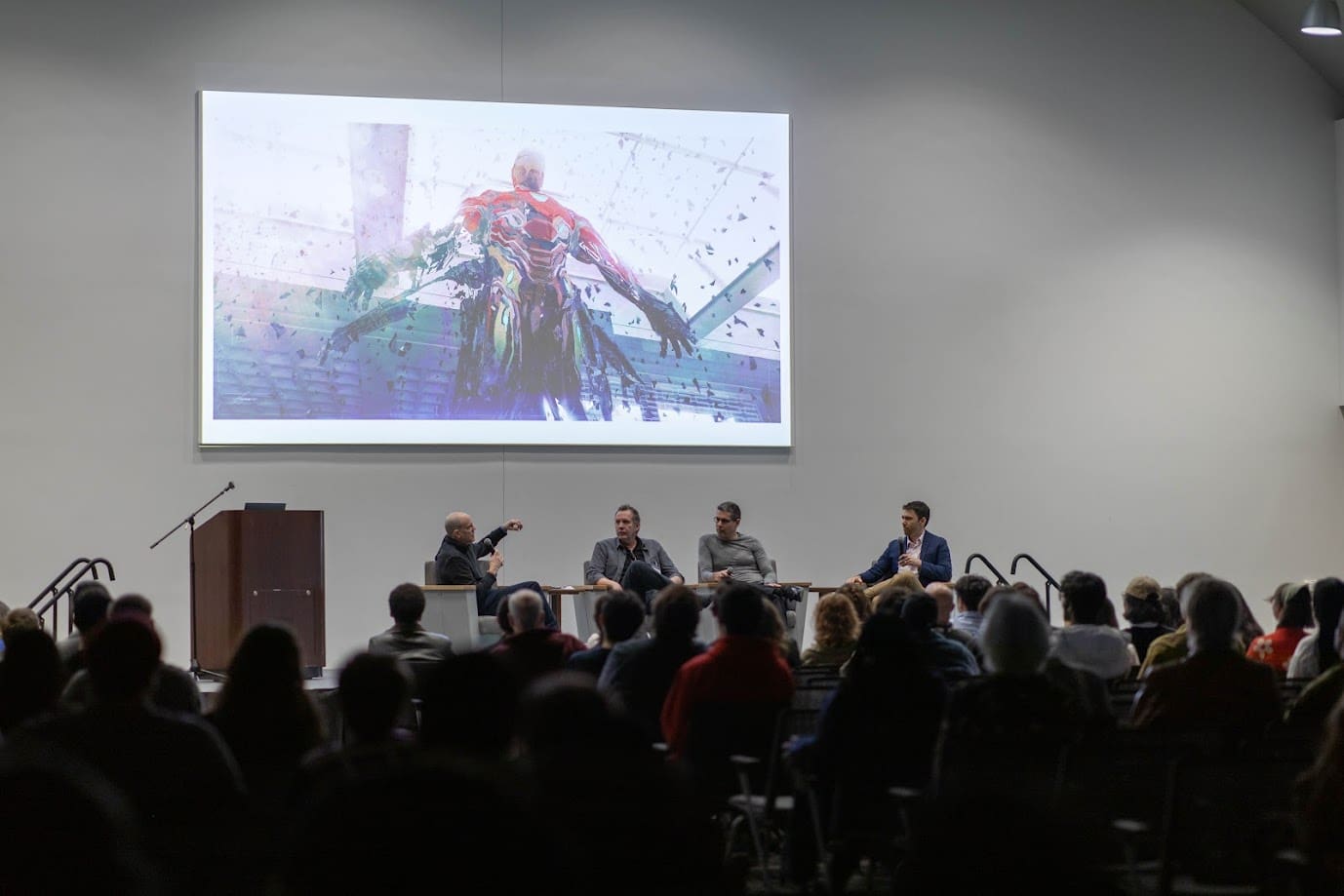
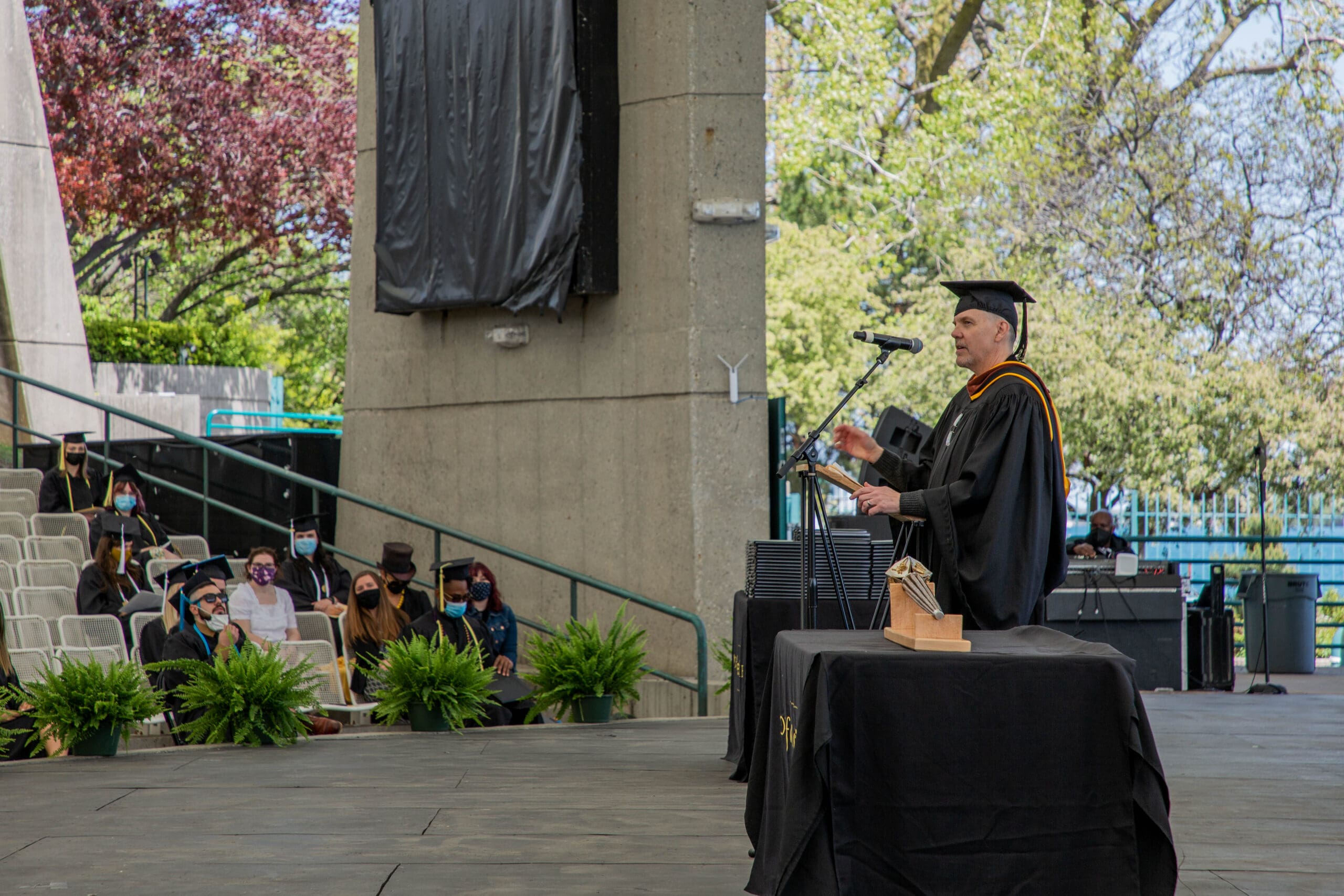

David Gazdowicz is one of the many CCS faculty members Flattery has profoundly impacted. With a background in animating, filmmaking, audio producing and game/interaction design, Gazdowicz currently serves as the Chair of Entertainment Arts, overseeing the Animation, Game Design and Concept Design programs. A fellow CCS alum, he was a visiting artist and assistant professor at the College when Flattery became the Chair. Within Flattery’s first year in the role, he hired Gazdowicz as full-time assistant professor.
During his time working with Flattery, Gazdowicz admired Flattery’s “collaborative personality” and his ability to quickly assess what the Entertainment Arts department needed. He says Flattery gave faculty the agency to make decisions, and he kept the student experience at the forefront of his own decision-making.
“When he came in, every decision that he was making was all about, ‘How do we make it good for the students?’ or ‘How do we improve the students’ experience?’ or ‘How do we bring something to the students that is going to help them become better artists and storytellers, and give them a leg up in the industry?’” Gazdowicz says. “I was really blown away by how much he really did care.”
When Gazdowicz was made Chair of Entertainment Arts – Animation, Game Design and Concept Design, he recalls Flattery empowering him to take on the role. Gazdowicz tries to give that same encouragement and autonomy to his faculty, just like Flattery did before him.
“I feel like [these are] some of the best years that I’ve been at CCS and some of the most progress we’ve made,” he says. “We’re trying to make the curriculum as best as it can be, helping the students as much as we can, really being flexible with the students — and that all comes from Tim.”
Innovating processes to intentionally enhance the student, faculty and staff experience has always been a priority for Flattery. When he became Co-Leader of Academic Affairs in 2020, Flattery quickly found ways to adapt to remote learning during the pandemic, working with the College’s faculty to create online and asynchronous learning solutions. When he became Dean of Undergraduate Studies in 2021, Flattery worked with faculty to redesign the Foundations program. Rather than all first-year students taking the same Foundations courses, the program was organized to be discipline-specific to better support students’ individual career paths. He also oversaw the creation of the Interdisciplinary Art + Design program to support students interested in pursuing multiple disciplines rather than just one.
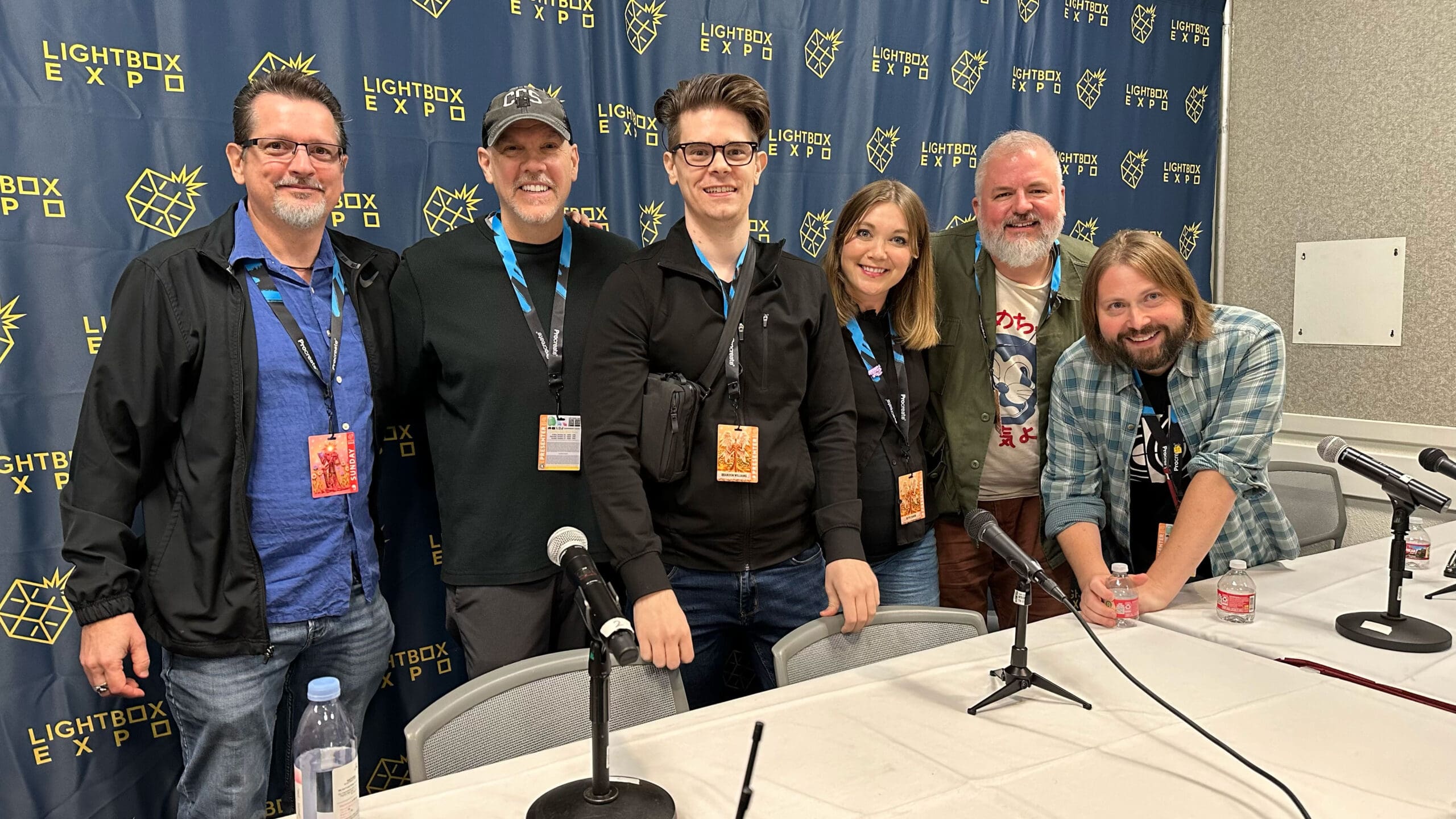
Flattery created the Chairs Council to encourage shared governance with department chairs. Through this council, academic department chairs could hold meetings, without the Dean, in order to discuss their concerns in a comfortable setting, create formal recommendations for consideration and be more effective leaders. “He empowered the Chairs to meet on their own and work on problems together,” Tuski says. “It was a very positive experience for the Chairs, for Academic Affairs and the College.”
All of Flattery’s industry and academic experience came to the helm when he was appointed Provost, Vice President of Academic Affairs and Chief Academic Officer in 2022. Flattery oversaw Academic Affairs and later Student Affairs, when it was brought under Academic Affairs to create a more holistic approach. From student organizations and residence life to resources for first-generation and international students, Flattery uplifted CCS’s goals to cultivate an exceptional environment for students, faculty and staff.
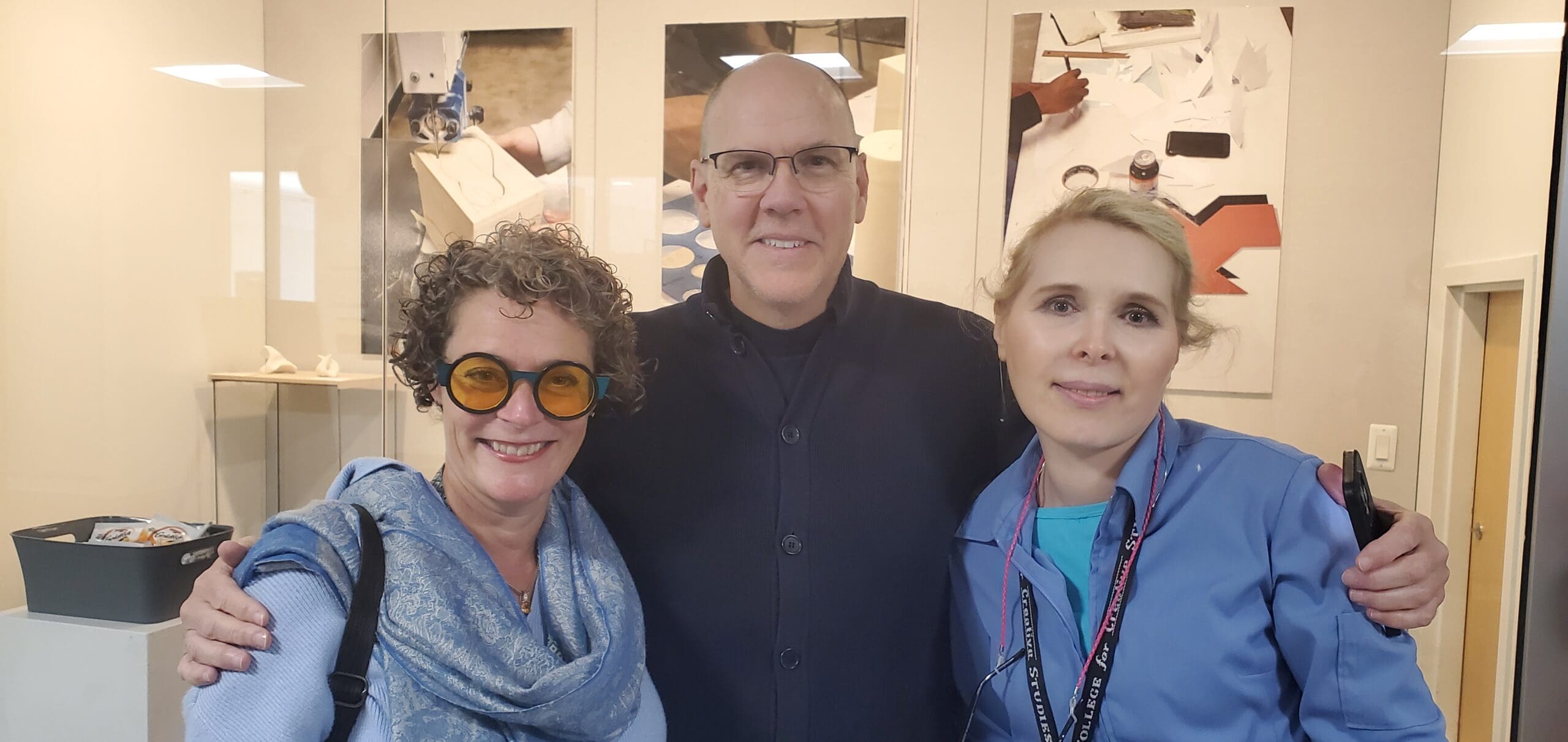
“Having a clear vision and a plan for implementing that vision is key,” Flattery says of being a provost. “Being a good communicator and overcommunicating is key.”
As Provost, Flattery continued his work of increasing shared governance and streamlining academic programs to make them more efficient. He combined the Fine Arts and Crafts departments to form the new Studio Art & Craft department as well as the Advertising and Communication Design departments to make the new Communication Design & Strategy department. He has also overseen the development of new reduced credit Bachelor of Arts programs that are currently awaiting accreditation.
Flattery’s passion for student success led to important student retention initiatives during his time as Provost. This intentional work brought CCS’s retention rate to its goal within the 80th percentile.
Flattery made CCS a leading example by instituting an artificial intelligence (AI) policy across the College in 2023, making CCS the first Association of Independent Colleges of Art & Design (AICAD) college in the country to do so. The four-point policy allowed for CCS students to show curiosity in the ever-evolving landscape of AI while remaining ethical and honoring intellectual property.
At the heart of all the policies, programs and committees, and no matter his job title, it has always been about giving everything he can to the students, faculty and staff. During his time at CCS, Flattery has taught students who have gone on to have their own fulfilling careers in their dream industries. “We have many successful alumni who are doing really fantastic work, in animation, film and game design. And many of them were students of Tim’s,” Tuski says. “It’s amazing just the number of alumni that Tim has taught who have gone on to work on their own television shows and work in movies like Tim has.”
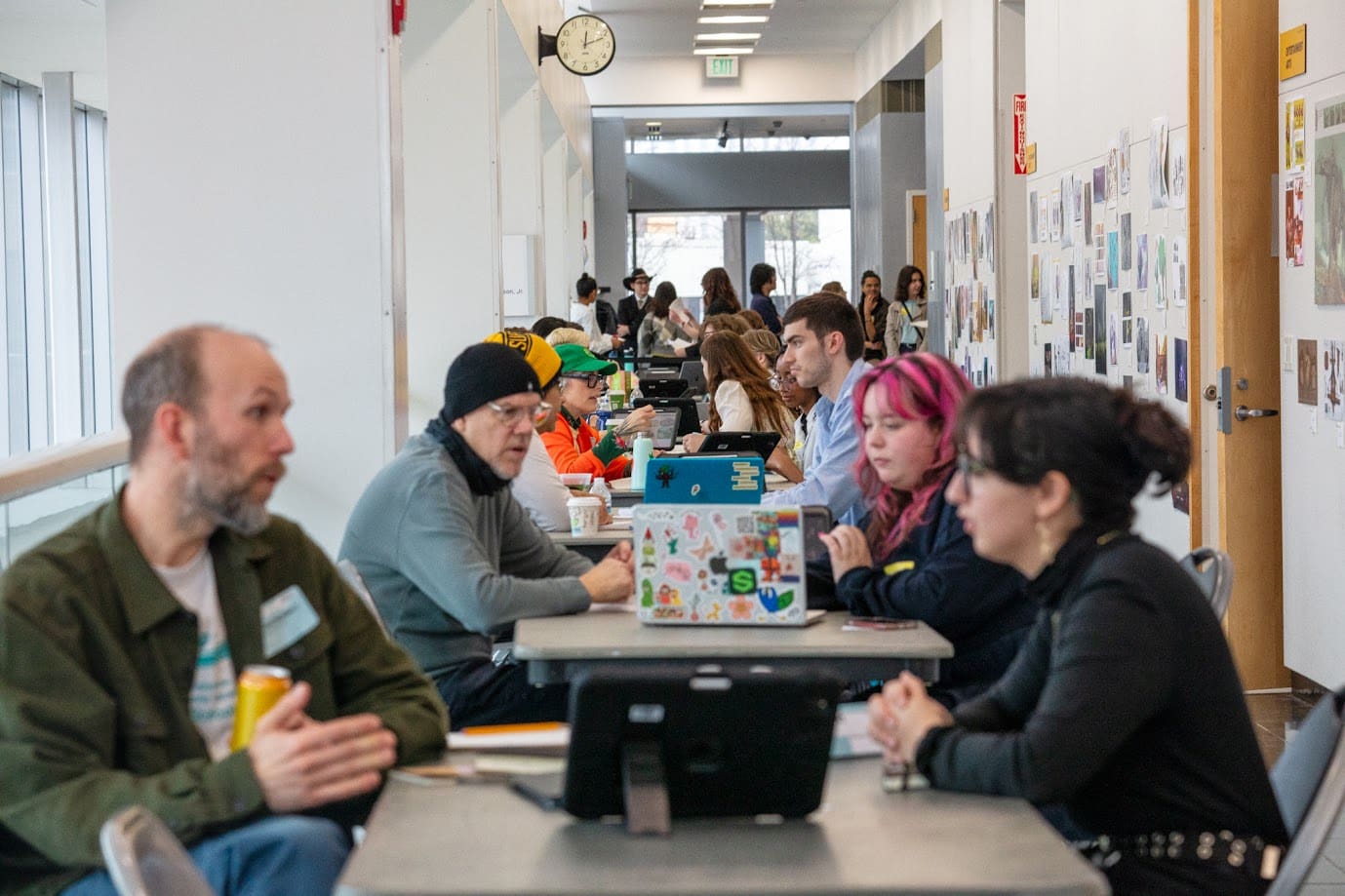
“He’s a phenomenal concept designer, teacher and communicator, able to get to the core of the issue and provide kind, helpful and directly actionable critiques. Tim helped me develop my skills, craft and design sensibilities. He’s someone I look up to; he’s approachable, humble and down to earth despite his great success. He was, and is, a mentor to me.”
– Alex Nakhleh ’24
“The atmosphere here is electric,” Flattery says of what he’ll miss most about CCS. There’s a creative fuel that just pumps through every room and every hallway of this institution that’s really infectious and inspiring. I’ll miss being around that constantly.”
